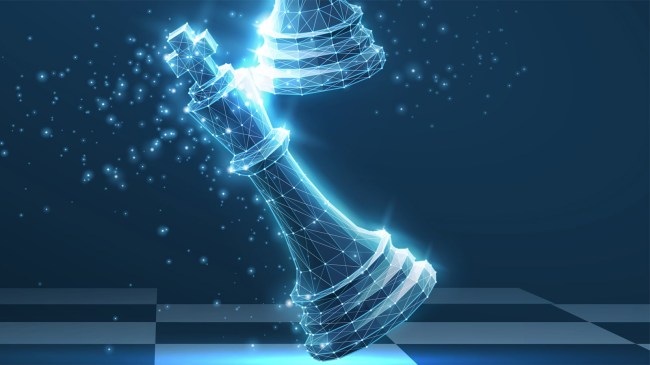
iStockphoto
Scientists developed a computer made from DNA that can solve simple chess and Sudoku puzzles, and some day could help advance the training of artificial intelligence models.
The potential advantages of a computer made from DNA over traditional computers comes in multiple forms.
First, a DNA computer, if scaled up, would significantly less amounts of energy. Second, they can store vast amounts of information for thousands of years, in microscopically small volumes.
The current drawback of a computer made of DNA, according to New Scientist, is that “they tend to focus on storing data in this way or on using it for computation, but doing both at the same time has proved difficult.”
However, Albert Keung of the Department of Chemical and Biomolecular Engineering at North Carolina State University and his colleagues have created a computer made from DNA that is more stable and reusable than previous computing systems using cellulose microparticles to store many DNA strands at the same time.
The DNA holders resemble a branched nerve cell, allowing them to store DNA-encoded data extremely densely (at 10000 terabytes per cubic centimetre) but also protect the DNA molecules, keeping them stable for long periods of time. DNA stored in this way at 4°C (39.2°F) should remain intact for 6000 years, says Keung.
By doing this, Keung and his team were able to keep it from being destroyed during computations like solving simple chess and sudoku problems.
Keung and his team also used the system to solve simple chess and sudoku problems, based on a 3-by-3 grid. They did this by loading each of the roughly 1000 possible board configurations into the DNA microparticles and then transcribing them into RNA. Then, they used an enzyme to eliminate any solution that would break the rules of chess or sudoku, leaving behind only valid solutions.
If they can scale up this system, it could be used to train AI and replace the expensive and energy-intensive processors that are currently being used today.
The full scope of their research is discussed in a new report published in the journal Nature Nanotechnology.
Earlier this year, another group of scientists created a DNA computer that can assemble itself.
“Specifically, we design a set of 917 DNA tiles that can self-assemble in three alternative ways such that competitive nucleation depends sensitively on the extent of colocalization of high-concentration tiles within the three structures,” the researchers wrote.
“We’re hoping that people who don’t care about DNA at all… will be convinced that this is a new way to do computation,” one of the researchers, Arvind Murugan of the University of Chicago, said.